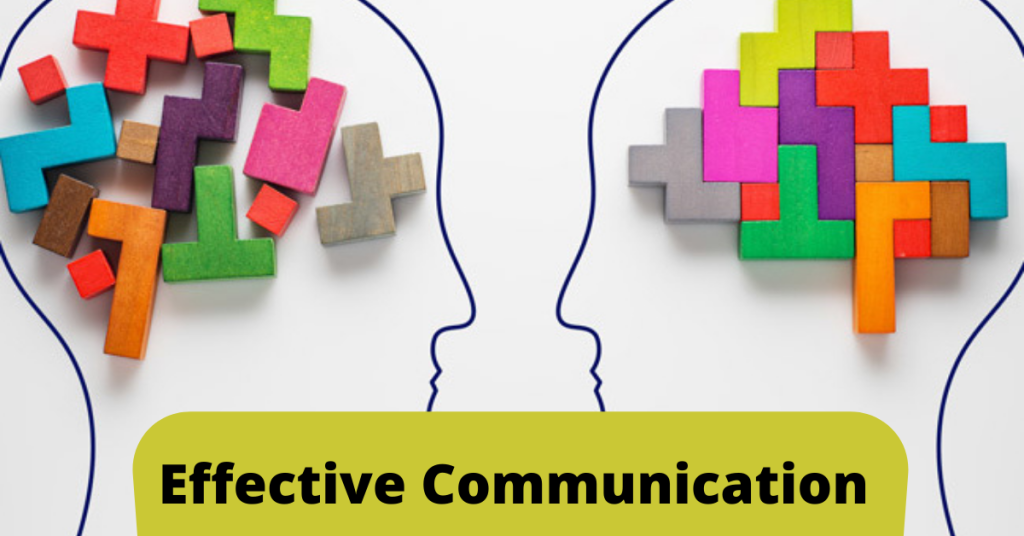Effective communication is a challenging subject. We all have our own unique style of communicating, but that doesn’t mean it’s the most effective way to get your point across. In this blog post, we will discuss some tips on how to improve your chances of getting through by focusing on what you’re saying and not just how you’re saying it.
Contents
What Is Effective Communication?
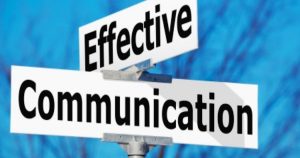 Effective communication is the process of sending and receiving messages that have the desired effect. In order to be effective, communicators need to understand both themselves and their message. They must also take into account their audience, the context in which the communication is taking place, and the medium through which it will be delivered. This also includes understanding nonverbal communication cues.
Effective communication is the process of sending and receiving messages that have the desired effect. In order to be effective, communicators need to understand both themselves and their message. They must also take into account their audience, the context in which the communication is taking place, and the medium through which it will be delivered. This also includes understanding nonverbal communication cues.
Effective communication is not always easy. It takes practice, patience, and a willingness to learn. This guide will help you improve your communication skills and increase your chances of getting through to the people you need to reach.
Basics of Effective Communication
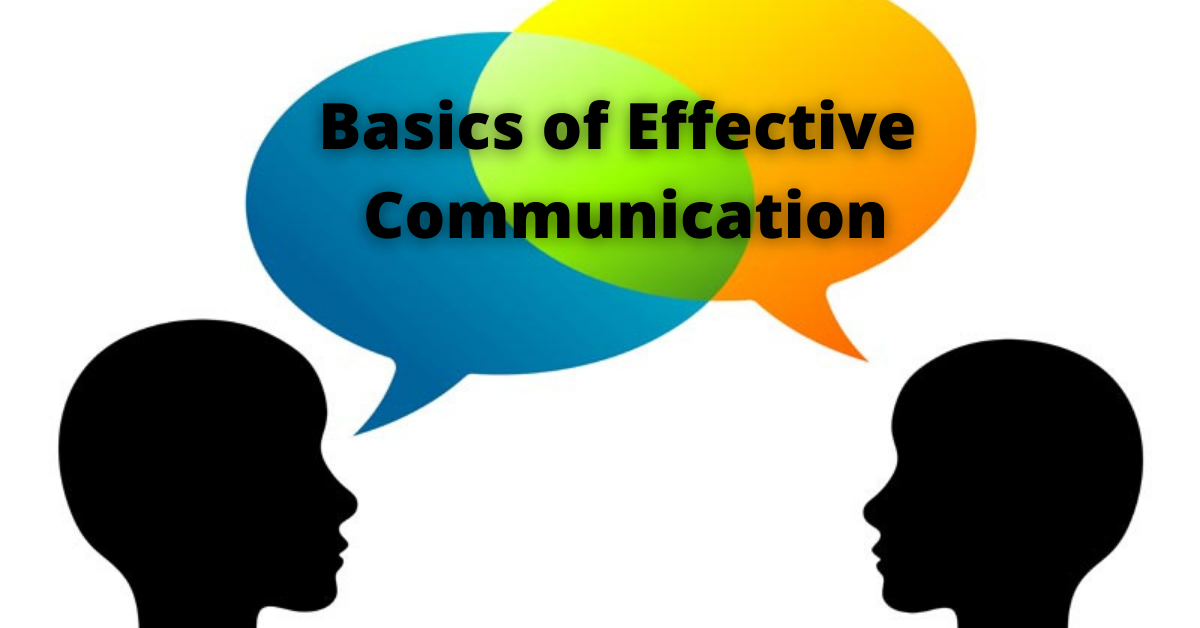
Before we can discuss how to improve your communication skills, we first need to understand the basics of effective communication. There are four key elements in every effective communication exchange: sender, message, receiver, and feedback.
Sender
The person who initiates the communication is the sender. This could be a client reaching out to their therapist, an employee sending an email to their boss, or a customer contacting a company for assistance. This person is responsible for formulating the message and sending it on its way.
Message
The message is the content of the communication. It can be verbal or nonverbal, written or spoken, but it must be clear and concise in order to be effective.
Receiver
The receiver is the person who receives the message. They need to understand what the sender is saying and how they are saying it. This includes understanding both verbal and nonverbal messages.
Feedback
Feedback allows senders and receivers to gauge whether or not the communication was effective. It lets them know if their messages were received and understood correctly. Receivers can give feedback verbally or nonverbally, while senders can ask for feedback either orally or in writing.
Types of Effective Communication
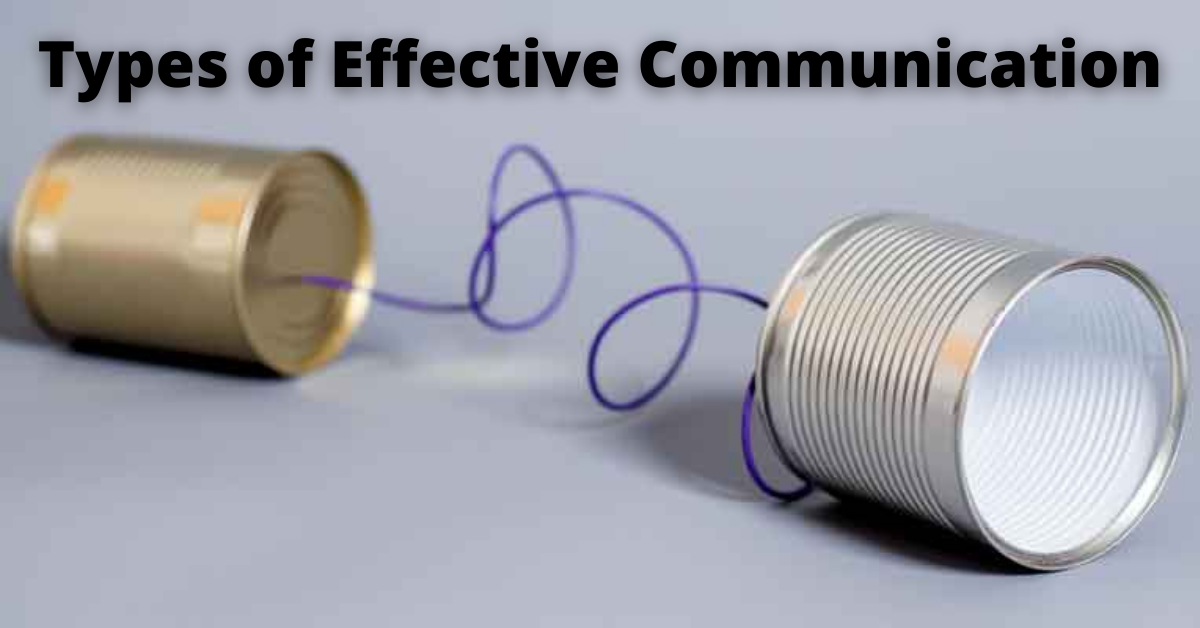
There are many types of effective communication, but they all share the same key elements listed above. The four most common types of effective communication are:
Direct Communication
Direct communication is the most direct and straightforward type of communication. It involves sending a message to a specific person or group of people and expecting a response. This type of communication is often used in business settings, where clear and concise messages are essential. This is also the type of communication most likely to result in feedback.
Indirect Communication
Indirect communication is less direct than direct communication. It involves sending a message to someone but not expecting a response. This type of communication is often used in personal relationships, where feelings and emotions are more important than facts and figures. Indirect communication can be verbal or nonverbal, but it usually relies on signals and cues to get its point across.
Negotiated Communication
Negotiated communication is a type of indirect communication that takes place between two or more people. It involves negotiating an agreement or solution through compromise. This type of communication is common in business negotiations and legal proceedings.
Contextual Communication
Contextual communication occurs when the context of the communication matters more than the content of the message. For example, a person’s tone of voice can be more important than what they are saying. This type of communication is common in customer service settings, where the context (e.g., time pressure, angry customer, etc.) can affect how the receiver interprets the message.
Nonverbal Communication
Nonverbal communication refers to all of the ways we communicate without using words. It includes facial expressions, body language, and gestures. Nonverbal communication is often used to convey feelings and emotions, which can be difficult to express verbally. It is also used to reinforce or contradict verbal messages.
Informational Communication
Informational communication is used to share information with others. It can be used for both formal and informal purposes, and it often includes detailed instructions or explanations. This type of communication is commonly used in workplaces, schools, and other educational settings.
Persuasive Communication
Persuasive communication is used to convince others to agree with our point of view. It is used to persuade others to take action or change their opinion. This type of communication is often used in political and advertising campaigns. This type of communication is common in business and legal settings.
Written Communication
This type of communication is used to send messages through text or email. It can be used for both formal and informal purposes, and it often includes detailed instructions or explanations. Written communication is commonly used in workplaces, schools, and other educational settings.
How To Establish Effective Communication?
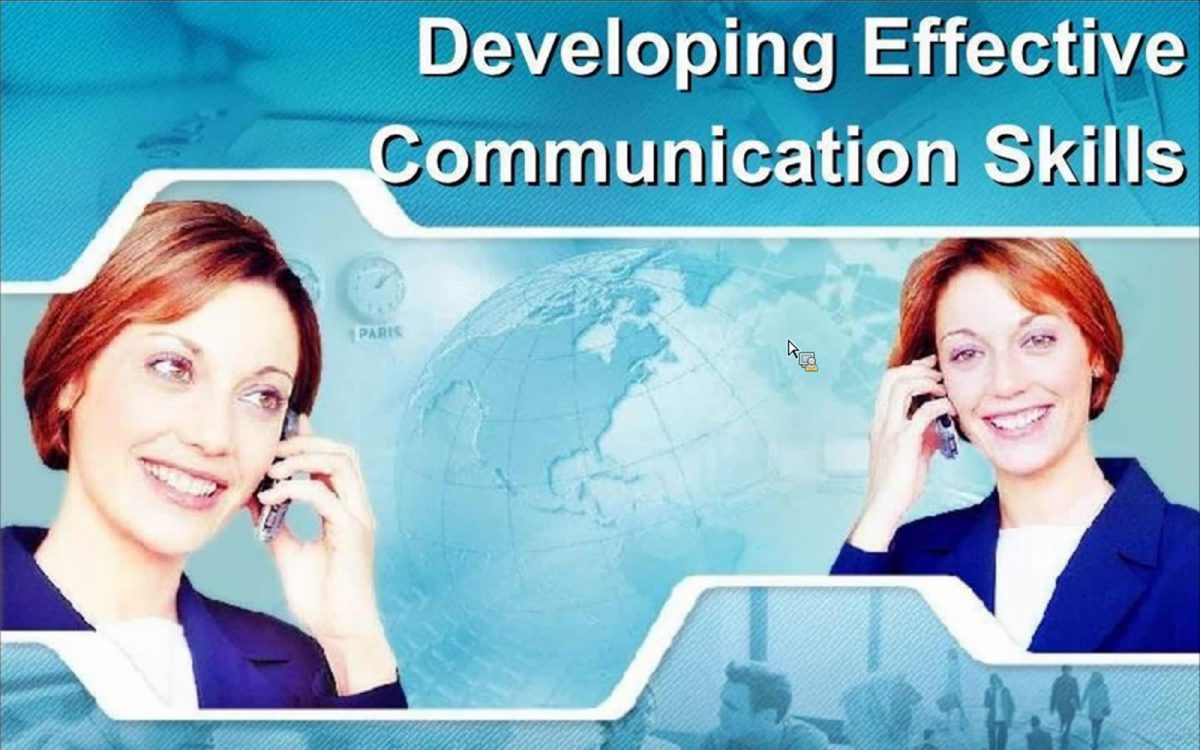
There are many ways to establish effective communication, but the key is to find a method that works for both you and the other person. Some of the most common methods include:
Contacting To Person
This is one of the stage methods to establish communication. It is very direct, and it usually involves sending a message to the other person through some type of communication medium (e.g., email, text, phone call).
Talking Face-To-Face
This is the most direct type of communication, and it allows for two-way communication. You can use this in business settings, where clear and concise messages are essential.
Talking On Phone
This is a common method of communication that can help for both personal and business purposes. It allows for one-way communication, which can be helpful when you need to gather information from the other person.
Using Text Message Or Email
This is a popular method of communication that helps for both formal and informal purposes. It allows for one-way communication, which can be helpful when you need to gather information from the other person.
Communicating Via Social Media
Social media platforms like Facebook and Twitter allow for two-way communication. This can help for both personal and business purposes. However, it’s important to remember that social media is a public forum, so the messages you send may not be private.
Trying To Build Relationships
The next step is to try to build relationships with the other person. You can do this by meeting them in person, talking to them on the phone, or sending them messages through social media. Building relationships takes time and effort, but it’s worth it if you want to establish effective communication. There can be many methods to improve relationships. Some of these are taking the time to get to know the person, listening more than talking, and not judging them.
Trying To Start Conversation
There are many ways to start a conversation with someone, but the most important thing is to be respectful and polite. You can try asking them about their day, their hobbies, or their opinion on a current event. If you don’t know what to say, you can always ask them for help.
Ending Conversation
The last step can be just as important as the first step. It’s important to know how to end a conversation without offending the other person. You can do this by thanking them for their time, saying that you need to go, or telling them that you have to leave for an emergency.
Benefits of Effective Communication
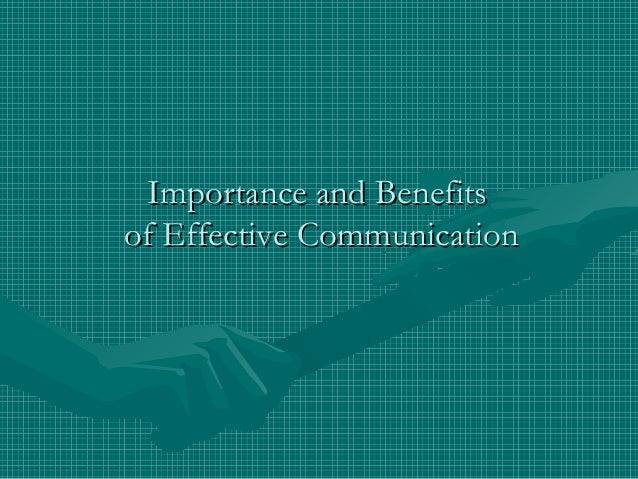
There are many benefits of effective communication, including:
Improves Relationships
Effective communication is essential for building and maintaining relationships. It allows people to understand each other better, and it helps them resolve conflicts in a constructive way.
Increases Productivity
When everyone is on the same page, communication is more effective and productivity increases. This is because there are fewer misunderstandings and less time wasted trying to figure out what someone meant.
Builds Trust
Trust is essential for any relationship, personal or professional. Effective communication builds trust by showing that you’re willing to communicate openly and honestly with the other person.
Creates Positive Environment
Communication plays an important role in creating a positive work environment. When employees feel comfortable communicating with their boss, they’re more likely to be productive and happy at work. This also applies to personal relationships, where effective communication can help create a positive and supportive environment.
Tips For Maintaining Effective Communication
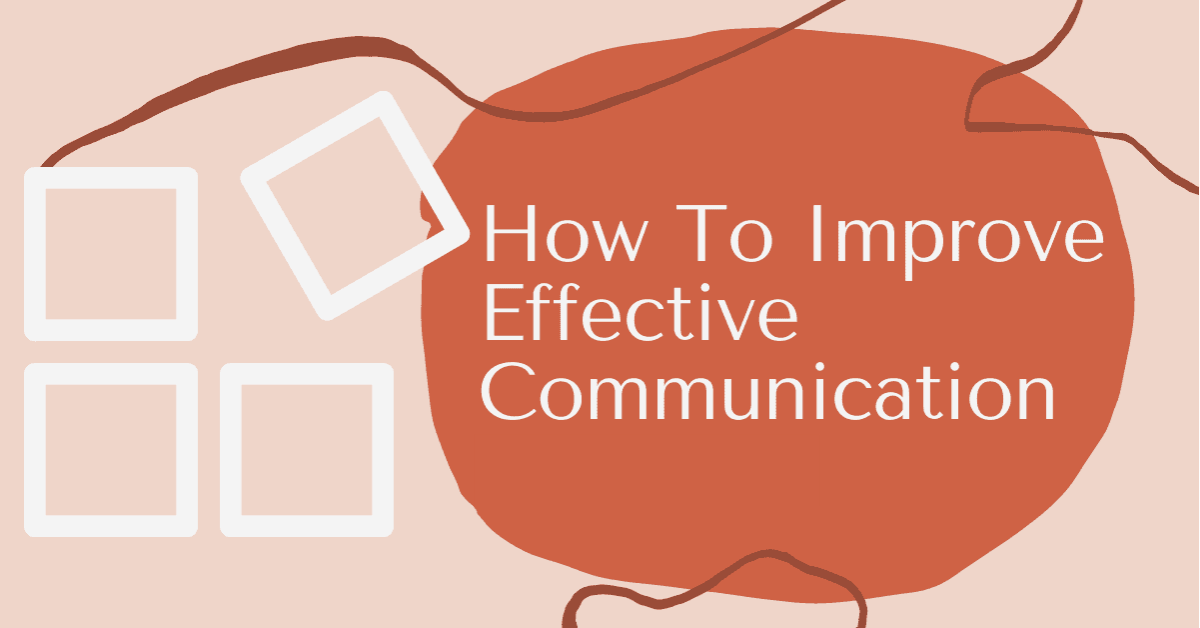
There can be many tips for maintaining effective communication, but the most important thing is to be respectful and polite. Some others are:
Try To Listen Actively
This is one of the tips for maintaining effective communication. Listening actively means paying attention to what the other person is saying and not just waiting for your turn to talk. It also means understanding what they’re saying, and asking questions if you don’t understand.
Avoid Judging The Other Person
It’s important to remember that everyone is different, and you should never judge the other person based on your own opinions. This includes judging them based on their race, religion, or political beliefs.
Respect Their Boundaries
Everyone has different boundaries, so it’s important to respect the other person’s boundaries. This means not contacting them at inappropriate times, respecting their privacy, and not pushing them too far.
Be Polite And Respectful
This is probably the most important tip for maintaining effective communication. Being polite and respectful will make the other person more likely to listen to you, and it will help create a positive environment.
Use Good Tone
This is especially important when you’re communicating through text or email. Using a good tone will show that you’re friendly and interested in what the other person has to say.
End With Positive Note
It’s always a good idea to end on a positive note, especially if the conversation was difficult or there was some disagreement. This will leave the other person with a positive impression of you, and it could help resolve any conflicts that may have arisen.
Conclusion
In conclusion, effective communication is essential for building and maintaining relationships. It allows people to understand each other better, and it helps them resolve conflicts in a constructive way. When everyone is on the same page, communication is more effective and productivity increases. Trust is essential for any relationship, personal or professional. Effective communication builds trust by showing that you’re willing to communicate openly and honestly with the other person. Communication plays an important role in creating a positive work environment. Being polite and respectful will make the other person more likely to listen to you, and it will help create a positive environment.
A Word From Therapy Mantra
Your mental health — Your psychological, emotional, and social well-being — has an impact on every aspect of your life. Positive mental health essentially allows you to effectively deal with life’s everyday challenges.
At TherapyMantra, we have a team of therapists who provide affordable online therapy to assist you with issues such as depression, anxiety, stress, workplace Issues, addiction, relationship, OCD, LGBTQ, and PTSD. You can book a free therapy or download our free Android or iOS app.
